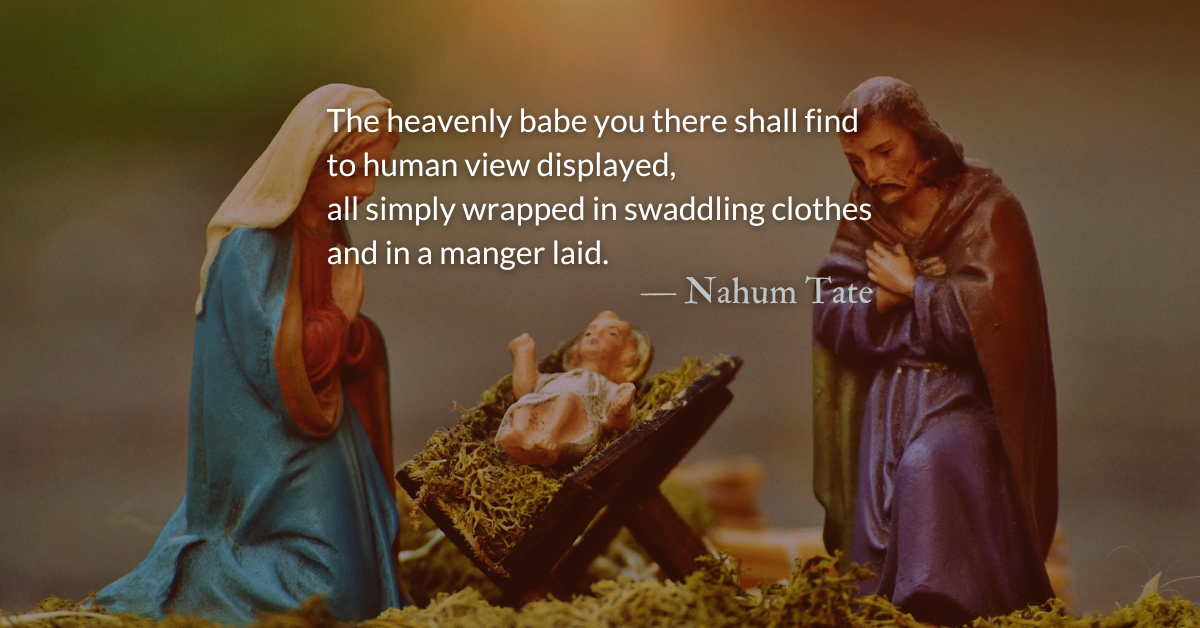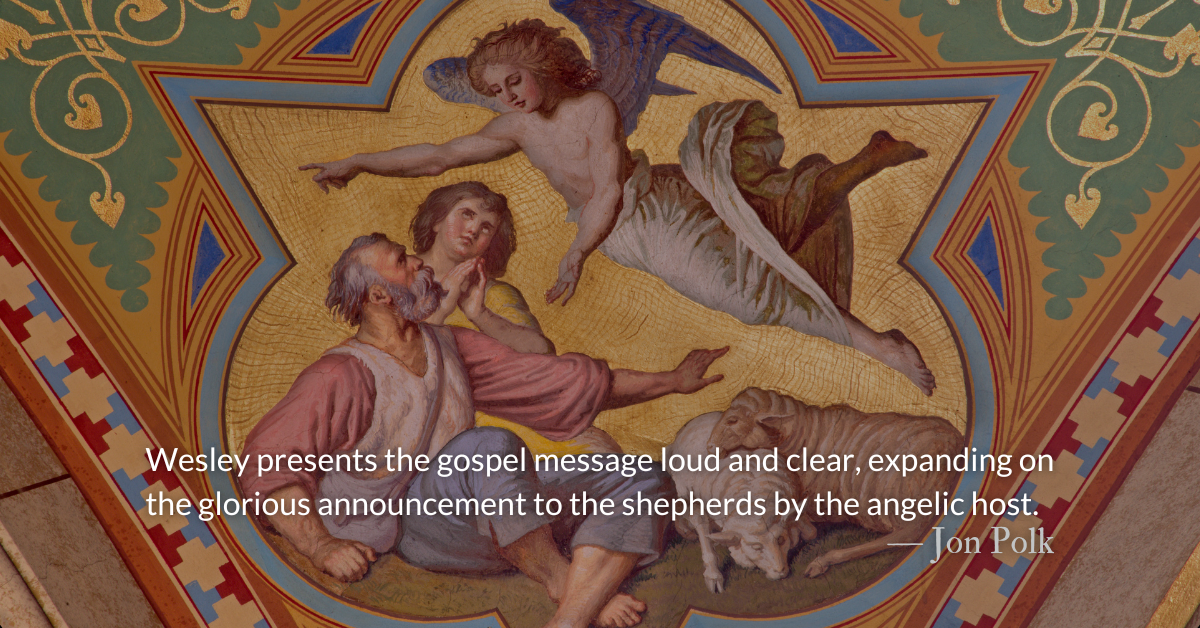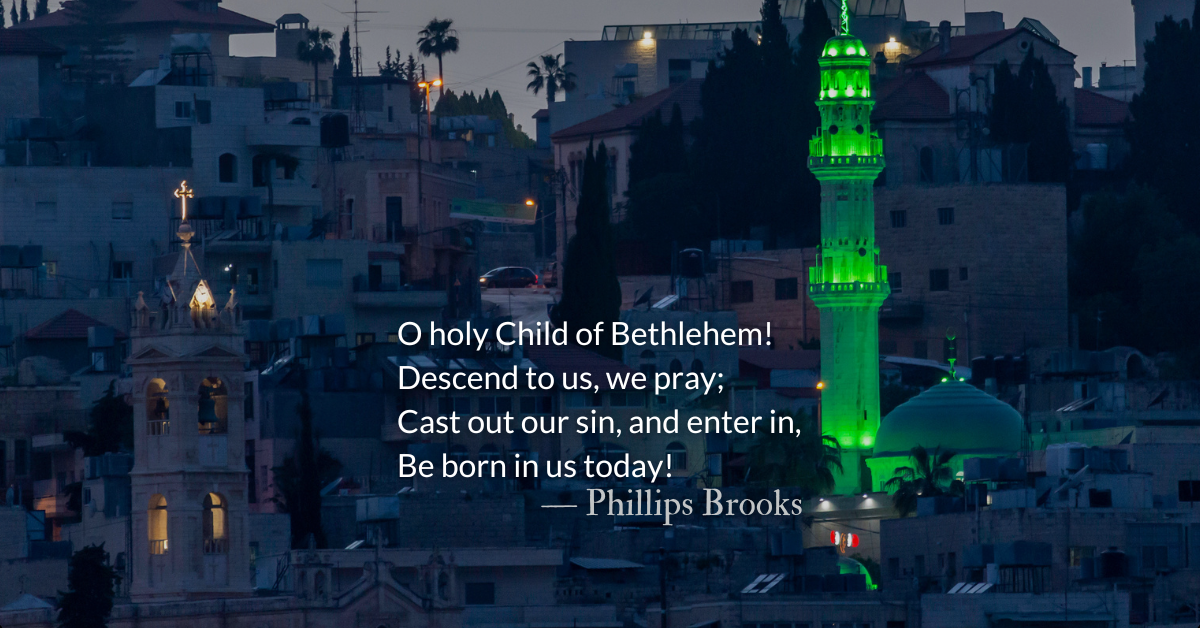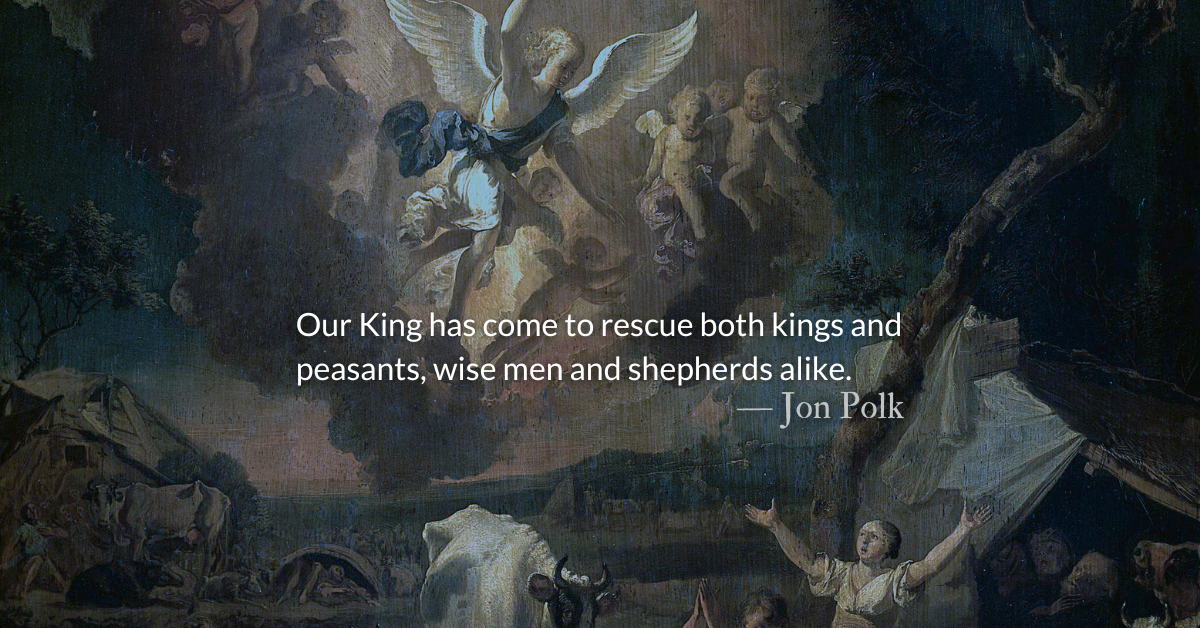Scripture Focus: Psalm 136:23-26
23 He remembered us in our low estate
His love endures forever.
24 and freed us from our enemies.
His love endures forever.
25 He gives food to every creature.
His love endures forever.
26 Give thanks to the God of heaven.
His love endures forever.
Matthew 1:22-23
22 All this took place to fulfill what the Lord had said through the prophet: 23 “The virgin will conceive and give birth to a son, and they will call him Immanuel” (which means “God with us”).
Reflection: Silent Night — Carols of Advent Joy
By Jon Polk
Silent Night holds the distinction of being the world’s most recorded Christmas song. There are over 137,000 known recorded versions of the carol!
There are classics like Bing Crosby’s version or the Mormon Tabernacle Choir’s rendition. There are also gospel, rap and heavy metal versions! The song has universal appeal and speaks to our longing for peace and hope in a dark world.
During the famous “Christmas Truce” of 1914, when British and German troops in World War I voluntarily ceased fighting on Christmas Day, one of the carols that they sang together was Silent Night.
Silent night! Holy night!
All is calm, all is bright
’round yon virgin mother and child!
Holy infant, so tender and mild,
sleep in heavenly peace,
sleep in heavenly peace.
The song was born out of a period of insecurity and instability. Following the Napoleonic Wars, a young Catholic priest, Father Joseph Mohr arrived at the parish in the village of Oberndorf, Austria. He composed the text of the song for performance on Christmas Eve in 1818.
Mohr gave the lyrics to Franz Gruber, a schoolteacher and organist, asking him to compose a melody. As the story goes, the organ at the church in Oberndorf had been damaged by a recent flood and was out of commission at the time, leading Gruber to compose the music on guitar.
Karl Mauracher, who serviced the organ at the church, was apparently so taken by the song that he took the carol back with him to his village. Folk singers from Mauracher’s hometown included the song in their performances. One group, the Rainers, ultimately introduced the song to the U.S. on a tour in 1839.
Since then, the carol has become popular in all corners of the world. In 2011, UNESCO declared the song an intangible cultural heritage, stating
The song addresses the human desire for all-encompassing peace, conveys a feeling of fellowship, and promotes interpersonal exchange and mutual understanding.
Worldwide, the song is embraced as a call to peace for our world. We Christians know that peace comes from the Prince of Peace, the baby born on that night.
Ironically, the night itself was likely anything but silent – a newborn infant, surrounded by animals, in a barn, in a crowded city. But as we sing it, the song reminds us, for a few moments at least, of the need for peace in our own chaotic world.
May the words not be merely hopes and dreams but may we each work towards bringing Christ’s peace to our respective corners of the world.
Silent night! Holy night!
Wondrous star, lend thy light;
with the angels let us sing
“Alleluia” to our King:
“Christ the Savior is born!
Christ the Savior is born.”
Listen: Silent Night by Sandra McCracken
Read: Lyrics from Hymnary.org
Divine Hours Prayer: The Refrain for the Morning Lessons
Everyone will stand in awe and declare God’s deeds; they will recognize his works. — Psalm 64.9
– From The Divine Hours: Prayers for Summertime by Phyllis Tickle.
Today’s Readings
2 Chronicles 26 (Listen 4:00)
Psalms 135-136 (Listen 4:23)
This Weekend’s Readings
2 Chronicles 27-28 (Listen 6:27), Psalms 137-138 (Listen 2:42)
2 Chronicles 29 (Listen 6:49), Psalms 139 (Listen 2:26)
2 Chronicles 30 (Listen 4:56), Psalms 140-141 (Listen 2:44)
Read more about Pause To Read
Listen to the 1st full episode of our new podcast, Pause to Read, out today. Please subscribe, share the episodes, and give a rating/review to help others find the show.
Read more about Supporting Our Work
No matter the date or the size of a donation, we are thankful for it, however, time is running out to donate in 2023. Please consider giving to support our work before the end of the year.











